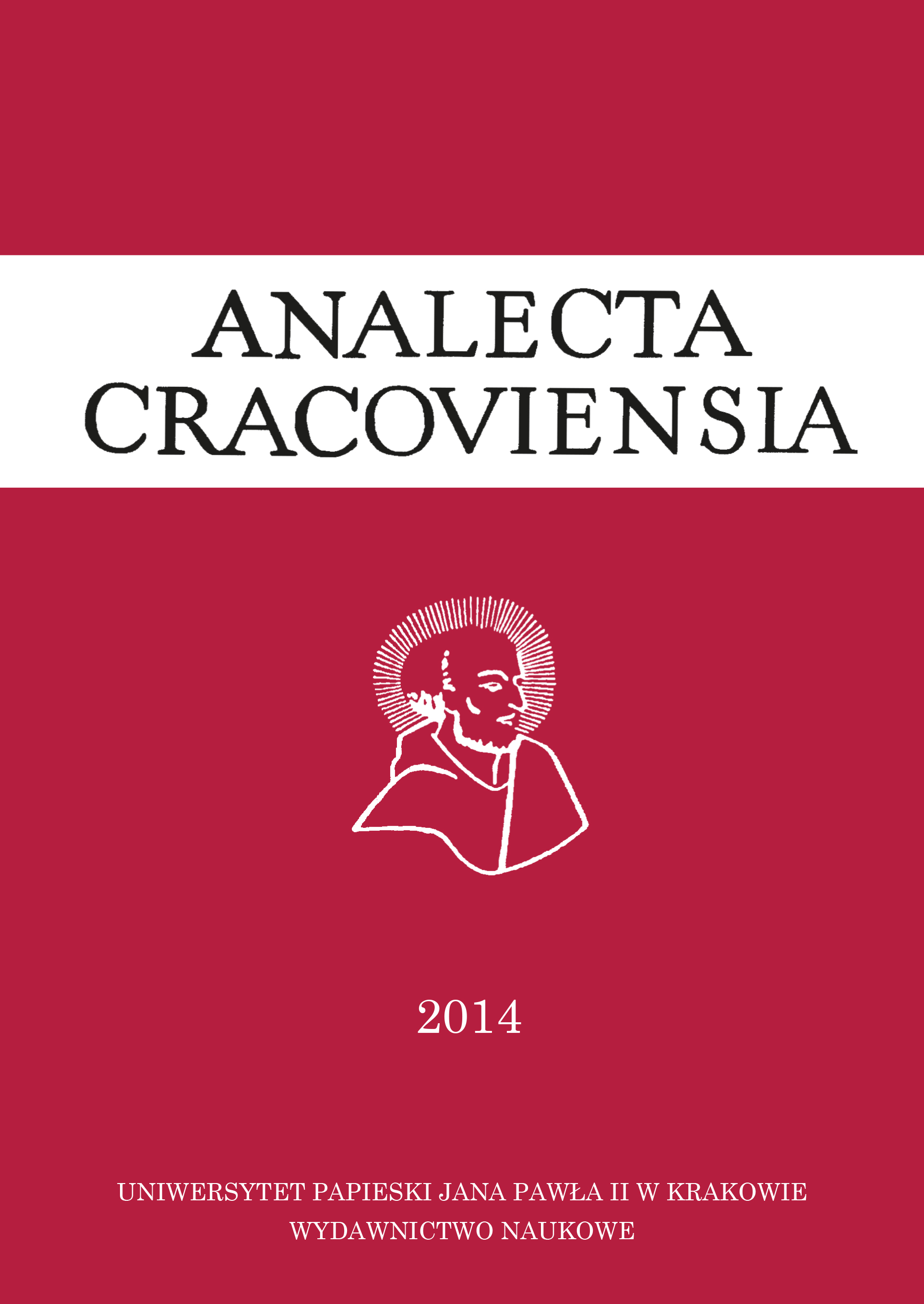The philosophical components of cognition contemplative
DOI:
https://doi.org/10.15633/acr.962Keywords:
original contemplation, structure antinomy-mystery, antithetic-synchronous and diachronic pluralismAbstract
For the present a man is looking for a specific kind of spirituality: its variety of ideas with often a bad influence on, among other things, the truth, good and beauty. This dangerous situation involves the radical position in human life. In article I present the contemplative pattern of existence according to real, deep reflection or prayer. At first, there is a description of existence as fundamental for all reality analyses. Next, an intuition and its kinds, definition of cognition contemplative, co-existence the truth and good as transcendental values, the anthropological and psychological aspects, too. Finally, the article shows connections between contemplation and metaphysics and also natural theology. These particular components of cognition create the structure of contemplation.
References
Albert K., Wprowadzenie do filozoficznej mistyki, tłum. J. Marzęcki, Kęty 2002.
Arystoteles, Etyka nikomachejska. Etyka wielka. Etyka eudemejska. O cnotach i wadach, [w:] Arystoteles, Dzieła wszystkie, tłum. D. Gromska, L. Regner, W. Wróblewski, t. 5, Warszawa 1996, s. 77–300.
Cantelmi T., Laselva P., Paluzzi S., Dialog psychologii z teologią, tłum. B. Piotrowska, Poznań 2006.
Furdzik P., Kontemplacyjne poznanie, [w:] Powszechna encyklopedia filozofii, t. 5, red. A. Maryniarczyk i in., Lublin 2004, kol. 829–833.
Gogacz M., Filozoficzne aspekty mistyki. Materiały do filozofii mistyki, Warszawa 1985.
Heller M., Pasja wiedzy. Między nauką a filozofią, Kraków 2011.
Iwanicki M., Rakowski T., Wojtysik P., Sukces nieważny, czyli z Profesorem Stefanem Swieżawskim rozmowy o kontemplacji, Tarnów 2001.
Kostecki R., Tajemnica współżycia z Bogiem. Zagadnienie cnót teologicznych wiary, nadziei i miłości, Kraków 1985.
Krąpiec M. A., Elementy filozofii poznania, [w:] Wprowadzenie do filozofii. Przewodnik, t. 3: Rozumieć filozofię i naukę, red. P. Gondek, Lublin 2000, s. 67–135.
Krąpiec M. A., Metafizyka. Zarys podstawowych zagadnień, Poznań 1966.
Sillamy N., Poznanie, [w:] Słownik psychologii, tłum. K. Jarosz, red. G. Szymańska, Katowice 1994, kol. 218.
Sudbrack J., Medytacja, [w:] Leksykon mistyki, tłum. B. Widła, S. Urbański, red. P. Dinzelbacher, Warszawa 2002, kol. 183–184.
Św. Tomasz z Akwinu, O poznaniu Boga, tłum. P. Lichacz, M. Przanowski, M. Olszewski, Kraków 2005.
Vagaggini C., Teologia. Pluralizm teologiczny, tłum. J. Partyka, Kraków 2005.
Życiński J., Trzy kultury. Nauki przyrodnicze, humanistyka i myśl chrześcijańska, Poznań 1990.
Downloads
Published
Issue
Section
License
Copyright (c) 2015 Iwona Münter

This work is licensed under a Creative Commons Attribution-NonCommercial-NoDerivatives 3.0 Unported License.
Authors who publish with this journal agree to the following terms:
- Authors retain the copyright and full publishing rights without restrictions, and grant the journal right of first publication with the work simultaneously licensed under a Creative Commons Attribution 4.0 International License that allows others to share the work with an acknowledgement of the work's authorship and initial publication in this journal.
- Authors are able to enter into separate, additional contractual arrangements for the non-exclusive distribution of the journal's published version of the work (e.g., post it to an institutional repository or publish it in a book), with an acknowledgement of its initial publication in this journal.
- Authors are permitted and encouraged to post their work online (e.g., in institutional repositories or on their website) prior to and during the submission process, as it can lead to productive exchanges, as well as earlier and greater citation of published work (See The Effect of Open Access).

